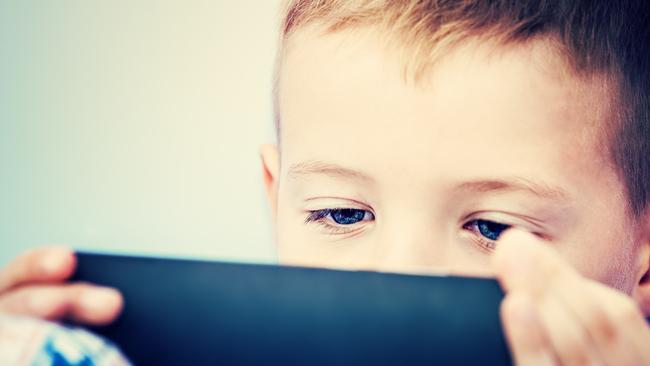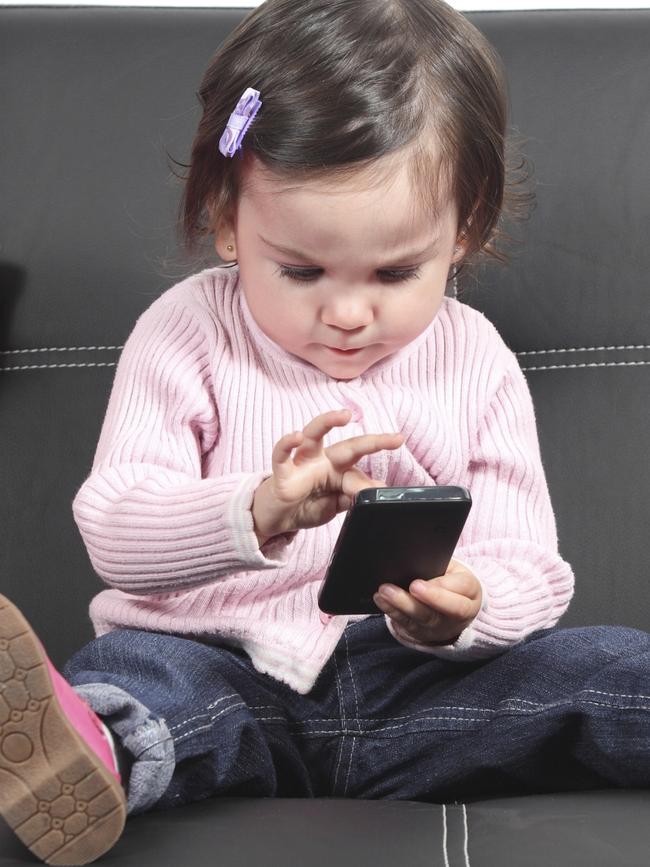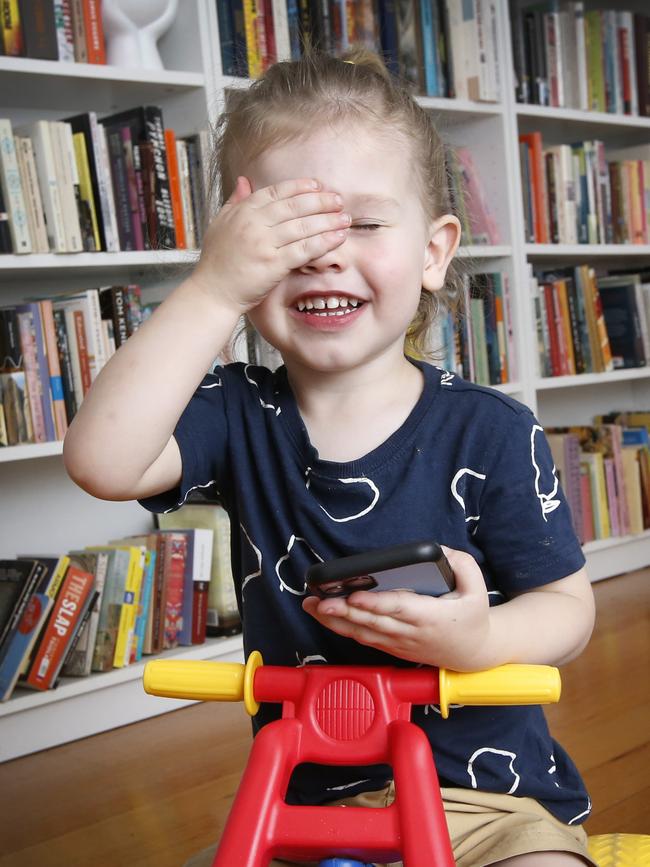Tablets, phones worse for toddlers than TV, study reveals
Too much time on phones and tablets poses a greater risk to toddlers’ health than TV — and tantrums can be a sign of worrying behavioural changes.
News
Don't miss out on the headlines from News . Followed categories will be added to My News.
Preschool children who spend long periods of time on smartphone and tablet screens are more likely to have behavioural and emotional problems including poor sleep patterns.
Small screens were also seen to be worse than TVs for toddlers, the study by Deakin University researchers found.
Prolonged use of small screens created risks to the social and cognitive growth of toddlers and pre-schoolers.
Researcher Sumudu Mallawaarachchi said any perceived benefits of amusing a child with a mobile phone were outweighed by the potential harm, especially with extended use.
Small screens were more addictive than big ones because engaging in a smartphone was a solo activity, as well as being portable and with internet access, she said.

“Children have to learn and find ways to regulate their behaviour, but when we give them a small screen we displace those natural mechanisms,’’ Ms Mallawaarachchi said.
The addictive nature of the devices often led to disruptive behaviour such as tantrums, she said.
“They find it difficult to calm themselves down and that can lead to hyperactivity and inattention. And some can become aggressive to the point of throwing tantrums.’’
The research team said the problem was so real, more data was needed and a new study project has been set up to gather information from parents.
Co-researcher Dr Sharon Horwood said at least half of toddlers and pre-schoolers who use mobile screens use them on their own.
“Overall, the negative findings are quite worrying given the wide use of educational apps that are available and considered beneficial for young children.’’
Dr Horwood said the sooner healthy habits are developed, the fewer challenges young children were likely to face as they grow.


Mum Courtney Knight-Braniff and husband Sean, from Maidstone, are wary of exposure to mobile phone screens for their little boy Teddy, age 2.
“We don’t let Teddy use our phones but he has a plastic one he plays with.
“I work on my phone all the time so I just keep it away, and we don’t have an iPad.’’
Ms Knight-Braniff said she understood parents feel the pressure to amuse or distract their children.
“I get it, hey, do whatever it takes. Parents’ mental health is important too so a five-minute break might work for them.’’
Australian Council on Children and the Media chief executive Barbara Biggins said it was challenging for parents to regulate their children’s access to smartphones when the devices were part of daily life and were designed to be persuasive.
“The technology is so enormously addictive to children and they can master it so quickly,’’ Ms Biggins said.
“It’s important for parents to be ‘screen smart’ and to avoid dependence of screens for entertainment because it can be a hard habit to break.’’
The study, out of the Deakin school of psychology, reviewed national and international studies that analysed child development and mobile phone screen use.
Parents of toddlers and pre-schoolers are being urged to take part in the Deakin survey at blackscreens.com.au to help further research.





